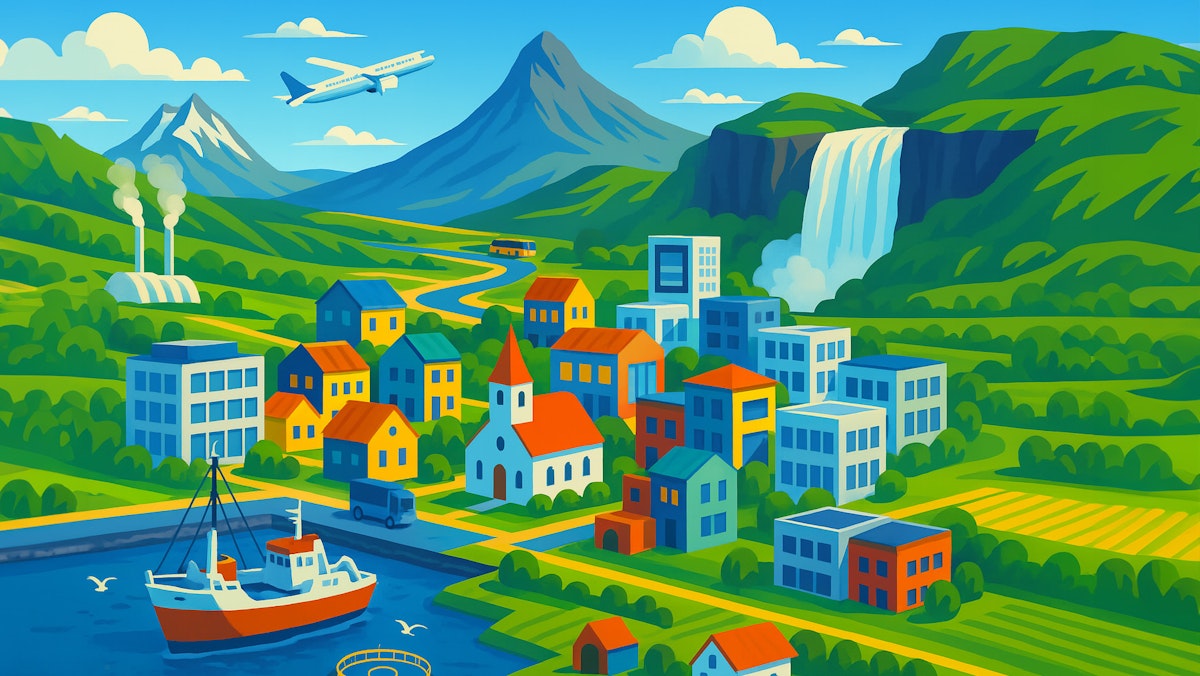Icelandic Economy Q2 2022
The Iceland Chamber of Commerce has published a new quarterly edition of The Icelandic Economy. The report is in English and gives a unique and comprehensive overview of the economy.
The report includes economic developments in recent months, competitiveness, the government's new fiscal plan, the structural and institutional framework of the economy and the effects of the war in Ukraine, among other recent developments.
Economic indicators suggest a significant boost in output in 2021 and the economy's swift recovery in the wake of the pandemic. However, the effects of the war in Ukraine introduced increased uncertainty in asset markets, rising global commodity prices and increased inflationary pressure.
Short-term indicators are promising and point to brighter times ahead with increasing output and continued economic growth.
Highlights
Economic Developments
Iceland has sustained a robust economic recovery and output has picked up due to strong domestic demand, increased gross capital formation and increased external trade. After a 7,1% contraction in 2020, GDP growth measured 4.3% in 2021 and is expected to be 4.8% in 2022. However, further output growth hinges on future development of external trade and further recovery of the tourism industry. Inflation has been persistent in the last year and in March it measured 6.7%, the highest since 2010. The Central Bank raised its key interest rate by 0.75 percentage points in February, which now stands at 2.75%, but further interest rate hikes are expected.
Other notable developments include the recent upgrade of Icelandic market status to Secondary Emerging market, which will help facilitate new capital inflow to the Icelandic economy and support capital raising opportunities for listed companies. The government’s new fiscal plan includes further support for R&D through tax incentives, an improved and lower government debt relative to GDP than anticipated in last year’s fiscal plan, and a continued, although decreasing, deficit.
Iceland at a Glance
Iceland ranks highly on several international indicators. According to the IMD’s Competitiveness Index, Iceland ranks 21st out of 64 countries in competitiveness. Infrastructure and several indicators regarding business efficiency are particular strengths, while the country’s small size and financial environment lag behind. Iceland ranks first in gender equality and on the Global Peace Index, it has held its place as the most peaceful country in the world since 2008.
Institutional Framework
Iceland is a parliamentary republic with a large public sector. The Central Bank targets inflation and the financial system is characterised by prominent pension funds and banks.
About the report
The Icelandic economy has undergone drastic changes in recent years and for a small open economy it is important to frequently convey useful information to stakeholders. Therefore, the report is sent to thousands of recipients in business, governmental administration, and other organisations around the world, in addition to being freely available online.
The Chamber offers a presentation based on the report. For further information, please contact our Economists, Elísa Arna Hilmarsdóttir (elisa@vi.is) and Gunnar Úlfarsson (gunnaru@vi.is).
